
The incidence of autism in modern societies continues to increase at rates never before observed. In the US and Canada, for example, diagnoses of autistism have increased nearly fiftyfold over the last forty years. Ayurvedic medicine has been very effective in supporting autism, utilizing specialized diets, herbs, yoga, and massage1. Children have improved through treatments that include food elimination, sensitivity testing, herbal supplements, yoga, and social normalization.
Nutrition, probiotics, and immune support
One factor thought to contribute to autism and autism spectrum disorders is impaired serotonin metabolism in the central nervous system. Autistic children contain significantly higher amounts of blood serotonin than normal, indicating a metabolic issue with serotonin (Hoshino et al., 2008).
Autistic children have digestive issues and food sensitivities. Certain foods, additives, and pollutants appear to have a significant impact, e.g., dairy products; nightshade vegetables like tomatoes, eggplants, potatoes, and peppers; citrus fruits; peanuts; preservatives, colors, food additives, insecticides, pesticides, and heavy metals. They may block serotonin metabolism or contribute to gastrointestinal discomfort. These issues may be reduced or avoided by eliminating some of these foods.
Digestion is supported by herbs like ginger, long pepper, black pepper, and the combination of all three, known as Trikatu. Trikatu stimulates the production of digestive enzymes and promotes the absorption of essential nutrients.
Autistic children are more likely to suffer from food sensitivities resulting from improper digestion, often a result of weakened digestive and immune systems. This may cause partially digested food to move into the bloodstream, causing an autoimmune response or a response similar to an allergic reaction.
This story is from the {{IssueName}} edition of {{MagazineName}}.
Start your 7-day Magzter GOLD free trial to access thousands of curated premium stories, and 9,000+ magazines and newspapers.
Already a subscriber ? Sign In
This story is from the {{IssueName}} edition of {{MagazineName}}.
Start your 7-day Magzter GOLD free trial to access thousands of curated premium stories, and 9,000+ magazines and newspapers.
Already a subscriber? Sign In
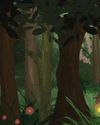
A Flower from THE HEAVENS
November 14 is Children's Day. This year, SARA BUBBER brings to you a world of forests, magical flowers, festivals, and some animals you may have never seen.

Meeting Phenomenal Women
The author, CHITRA BANERJEE DIVAKARUNI, is interviewed here by TARA KHANDELWAL and MICHELLE D'COSTA about her books on mythology, like The Palace of Illusions, which is a retelling of the Mahabharata from Draupadi's point of view, and The Forest of Enchantments, which is a retelling of the Ramayana, from the eyes of Sita. And there's The Last Queen, which is about Rani Jindan's life.
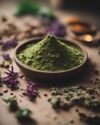
HERBAL TOOTH POWDERS: Rediscovering Ayurveda's Natural Secrets
SRAVAN BANDA presents a natural herbal tooth powder, offering a holistic approach to oral hygiene, harnessing the power of medicinal herbs.

The Dance of Light and Shadow Lessons from the Dolomites
ALAIN DESVIGNE explores the Dolomites, listed as a UNESCO World Heritage Site in 2009.
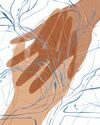
FINDING OUR WAY
A Polynesian Explorer's Journey of Discovery
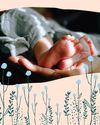
The First Imprint: Understanding PTSD
CHRISTIANNA DEICHMANN is the Director of Education at the Association for Pre and Perinatal Psychology and Health (APPPAH), where she educates both professionals and parents on fostering the most nurturing environments for welcoming new life into the world.

The Tipping Point
In this final conversation of the series, J. FREDERICK ARMENT continues to talk with CHRISTINE JONES about promoting peace in the world.
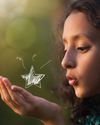
UNLOCK YOUR POTENTIAL
Take The Brighter Minds Path To Cognitive Development

The Intrinsic Goodness of the Heart
DAAJI shares some thoughts on heartfelt acceptance and all it has to offer. He says, \"It is the heart's intrinsic goodness that allows us to accept everything as part of us.
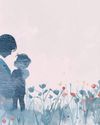
How Does Fear Affect Our Roles as Mothers? - Neelam Shivhare explores some of the great ancient texts of India on motherhood, compares the behavior of Kaikayi and Yashoda
Neelam Shivhare explores some of the great ancient texts of India on motherhood, compares the behavior of Kaikayi and Yashoda, and realizes the importance of removing fear from our hearts in order to nurture our children.For young women like myself, who are future mothers, I trust we are on the path of becoming selfaware and brutally honest with ourselves. We are creative beings, never forgetting the gifts with which we have been bestowed— the love and tenderness, natural instincts, and intuition to feel the right path. It all lies in the mysterious meanderings of the heart. Are we really listening to our hearts, or confusing the bombarding information on social media with reality?